Ferrum Forge Stinger Shipping with Revolutionary SM-100 Blades: Metal Superior to Super-Steels
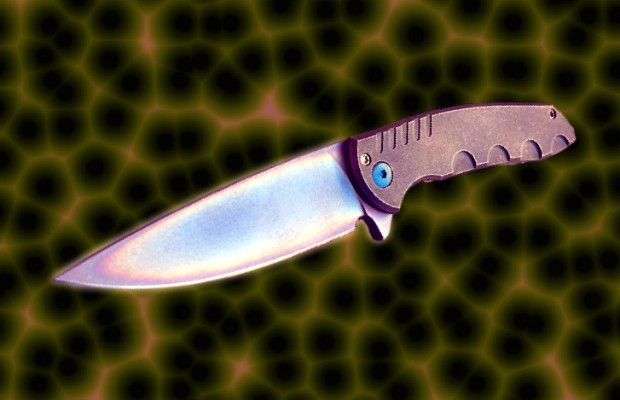
Ferrum Forge is about to ship a new flipper dubbed the Stinger. What makes the knife extraordinary is that the blade is made of a revolutionary metal known as SM-100. For Elliot Williamson, owner of Ferrum Forge Knife Works, the SM-100 Stinger project is the culmination of years of working to make it happen. “I sent them the first email they ever received,” he says, referring to Summit Materials, the alloy’s manufacturer. “I worked with them from the beginning because I knew it could be perfect for blade material.” SM-100 boasts “durability, edge retention, wear resistance, and impact resistance,” says Williamson. “I think we will see that this outperforms all the common blade steels and many of the new powdered metallurgy steel alloys like the CPM, and CTS series steels that are sweeping the knife world.”
The main drawbacks are that the material takes more time to work with and the metal is expensive and scarce. SM-100 is in short-supply because it is manufactured in small batches, and the alloy must be made in a vacuum. But, SM-100 is also corrosion-proof, wear resistant, impact resistant, flexible at high hardness, and 18% lighter than steel. “NASA could not crush a ball bearing made of SM-100 in the machine they built specifically to crush ball bearings,” says Williamson. “I am very hard on knives, because I know I can fix them. Not having a nick in over two months of my use has sealed the deal for me, I love this metal.”
Though it reportedly offers the perfect combination of qualities for a blade, SM-100 is not a ‘super-steel’ – in fact it is not technically a steel at all. Steel must contain iron, and SM-100 does not. Instead, it is composed primarily of Nickel and Titanium. “The base chemistry is derived from the 60NiTiNOL work that was done by the U.S. Navy in the late 1950’s and early 1960’s,” says Summit Materials. “At that point, even though the properties were astounding, it proved too difficult to work with to further pursue.” With the advent of powder metallurgy technology, adventurous alloys like SM-100 suddenly became more feasible. Since the metal contains Titanium, SM-100 is also anodizeable offering the promise of a variety of blade colors in the future.
One of the more elusive properties of non-steel alloys is their ability to take and hold a keen edge. SM-100 is different. “This isn’t like Stellite, Talonite, Beta Titanium, or Carbidized Titanium. It is hardened through the whole blade, not just the surface,” explains Williamson. “It actually holds an edge!” And though it may not be as effortless to sharpen as some steels, it doesn’t require exotic equipment. “It does take time, but something as simple as wet/dry sand paper on a hard surface will sharpen SM-100.”
Knife featured in image: Ferrum Forge Stinger


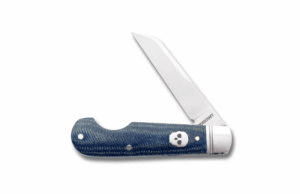
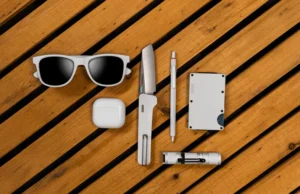
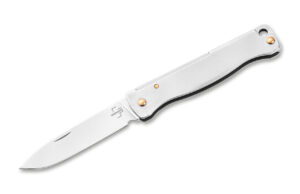
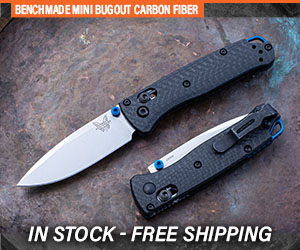
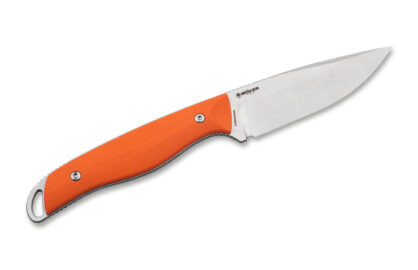




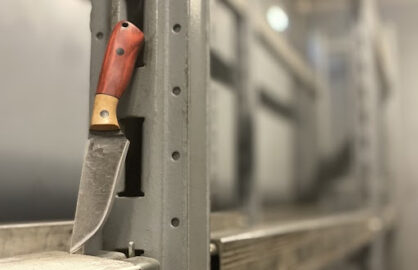

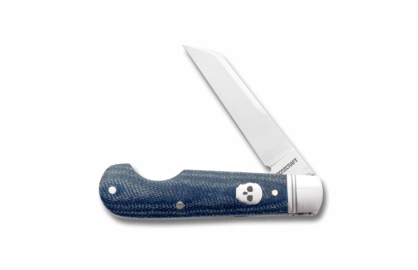
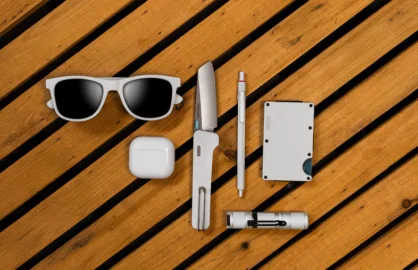
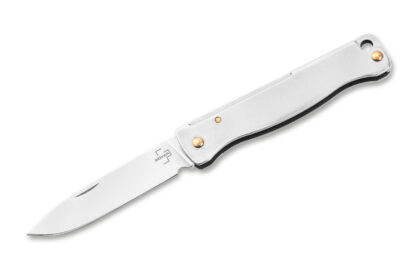
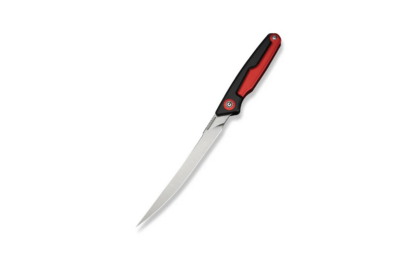
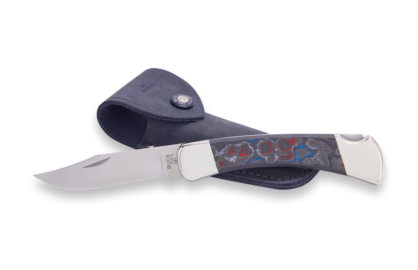



0 comments